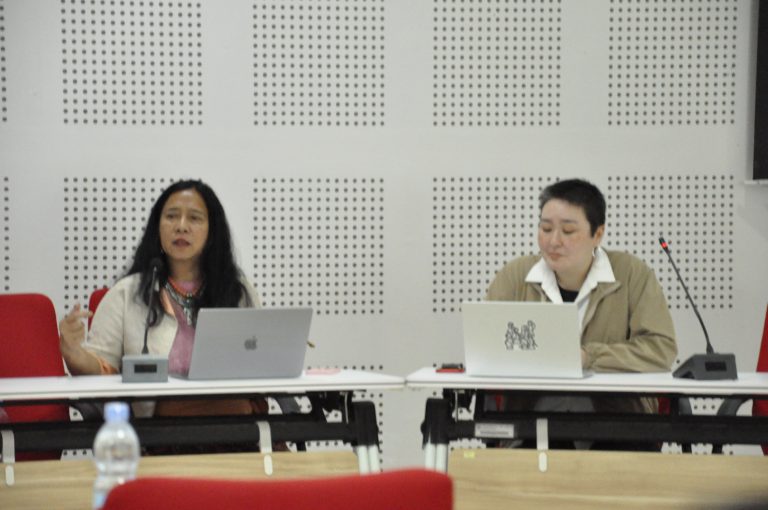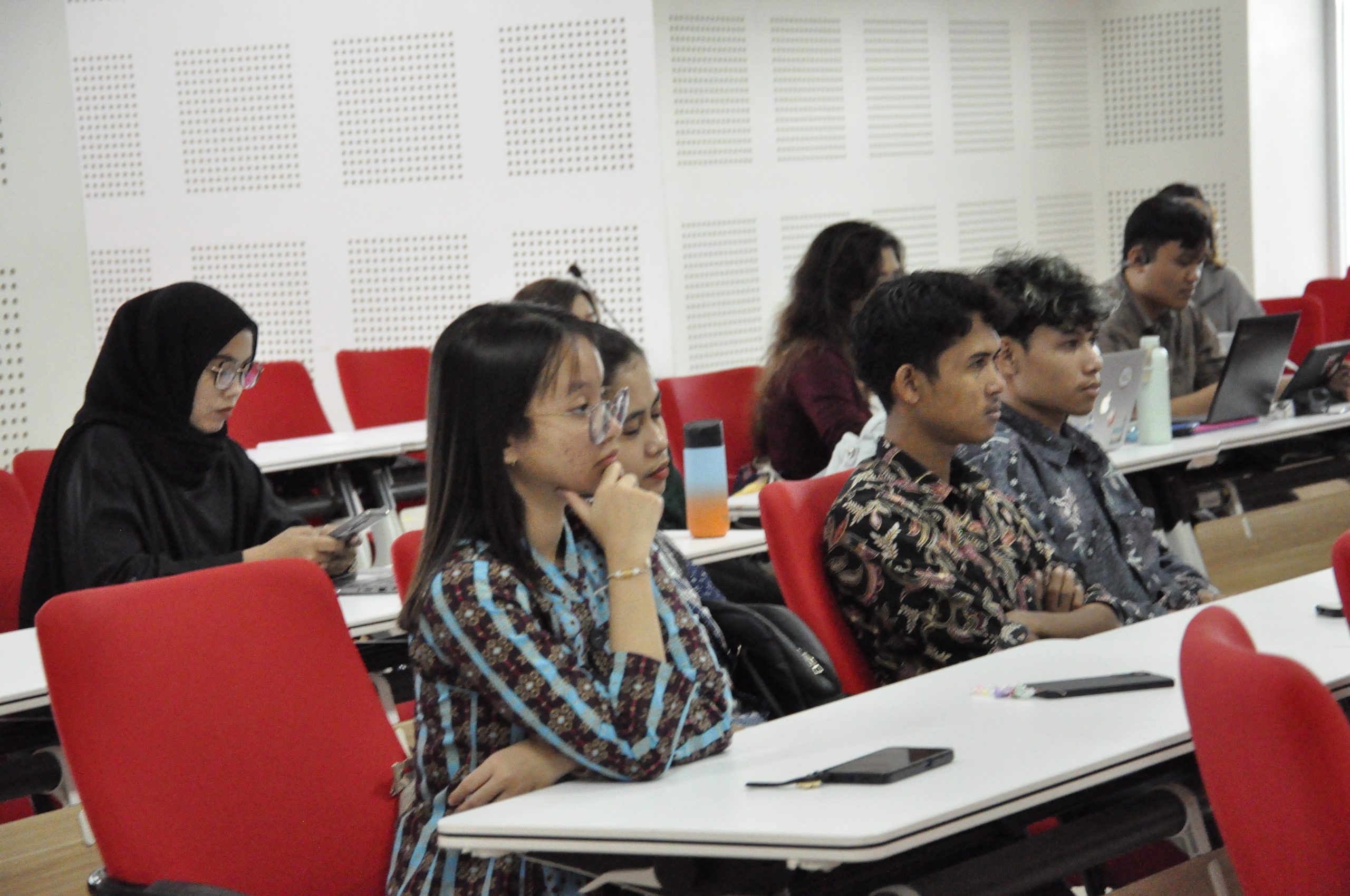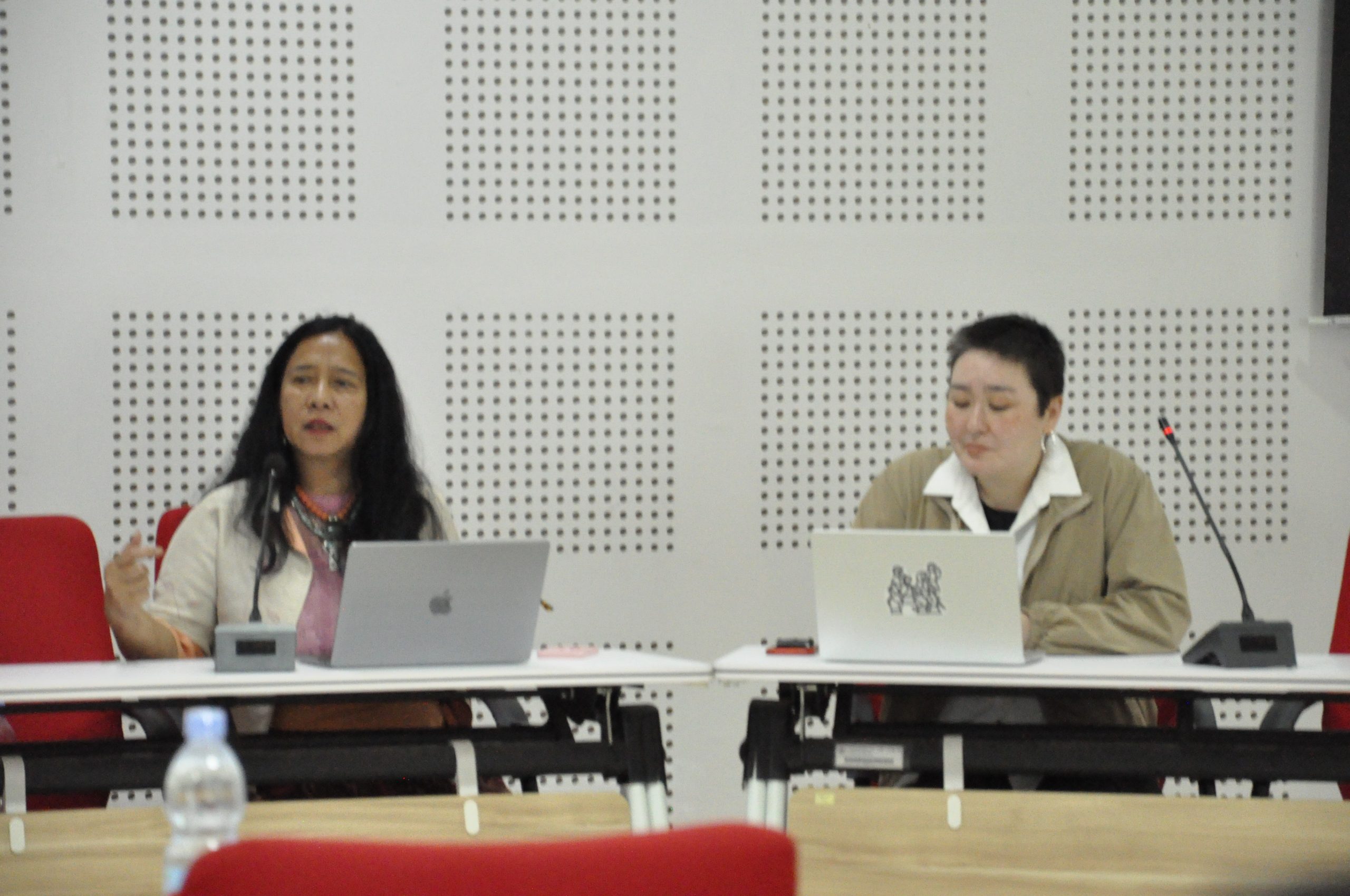
Yogyakarta, 16/06/2025 – The Master’s Program in American Studies held a seminar titled “Introduction to Bodies that Haunt: Rethinking the Political Economy of Racialized Death.” Taking place in Room 709, 7th Floor of the Soegondo Building at the Faculty of Cultural Sciences, this event served as a platform for critical discussions on racial violence, politicized death, and cultural memory within a global context—particularly in the Americas and Southeast Asia.
Moderated by Achmad Munjid, Ph.D., the seminar featured two prominent speakers with strong backgrounds in cultural studies, feminism, and historical memory: Dr. Emily Itamura and Dr. Rachmi Diyah Larasati.
The discussion began with an introduction by the moderator, who drew parallels between horror films and everyday life, highlighting the mass production of ghosts in popular culture. From this point, the seminar explored the meaning of “bodies that haunt”—a term that goes beyond traditional ghostly figures, referring instead to collective trauma, unresolved death, and suppressed forms of knowledge.

Dr. Rachmi Diyah Larasati opened the first session by examining the concept of ghosts through a local Indonesian lens. She explained that in Indonesian culture, ghosts often emerge as warnings, memories, or connections to unresolved political violence. In her talk, titled “Train and Its Fugitive Rhythms: Reflecting on Political Violence through Sound Aesthetics,” Dr. Rachmi encouraged the audience to interpret sounds and rhythms—such as train noises—as invisible archives of political violence. These sounds, she argued, act like ghosts: ever-present and evocative, even if not always consciously perceived.
She emphasized the importance of seeing ghosts not simply as supernatural beings, but as a way of rereading history shaped by trauma. Ghosts become embodied through shadows, feelings, sounds, and memories that seep into our everyday lives.

Building on this, Dr. Emily Itamura led participants into the historical trauma of the Cambodian genocide through her presentation “Love Story, Ghost Story: The Cambodian Genocide, Labour Extraction, and Hout Bophana.” She highlighted how love stories can become ghost stories within the context of violence, and how female figures like Hout Bophana continue to haunt post-genocide development narratives.
Dr. Emily argued that the United States, as a modern imperial power, is a haunted space—saturated with the legacies of colonialism, racism, and capitalist extraction of nonwhite bodies. She pointed to Hmong, Laotian, and Vietnamese communities in Minnesota as groups who carry the “ghosts” of war and forced migration—now inextricably woven into the fabric of American cultural life.
The conversation between Dr. Rachmi and Dr. Emily unfolded into a rich cross-cultural dialogue, blending feminist theory, imperial critique, and ethnographic approaches to explore how haunted bodies continue to reappear in collective memory, art, and sound.
The event concluded with a powerful insight: ghosts are not simply objects of fear, but forms of alternative knowledge about trauma, violence, and histories left unresolved. Ghosts act as reminders that not all experiences can be archived or silenced by official historical narratives. They emerge through sound, shadows, and emotions—quietly shaping how we remember the past and envision the future.
This seminar served as a reflective space where theory met lived experience, popular culture intersected with violent histories, and Indonesian localities resonated with global traumas. A poignant reminder: haunted bodies are not meant to be dismissed—they are meant to be heard.
[Humas FIB, Alma Syahwalani]

